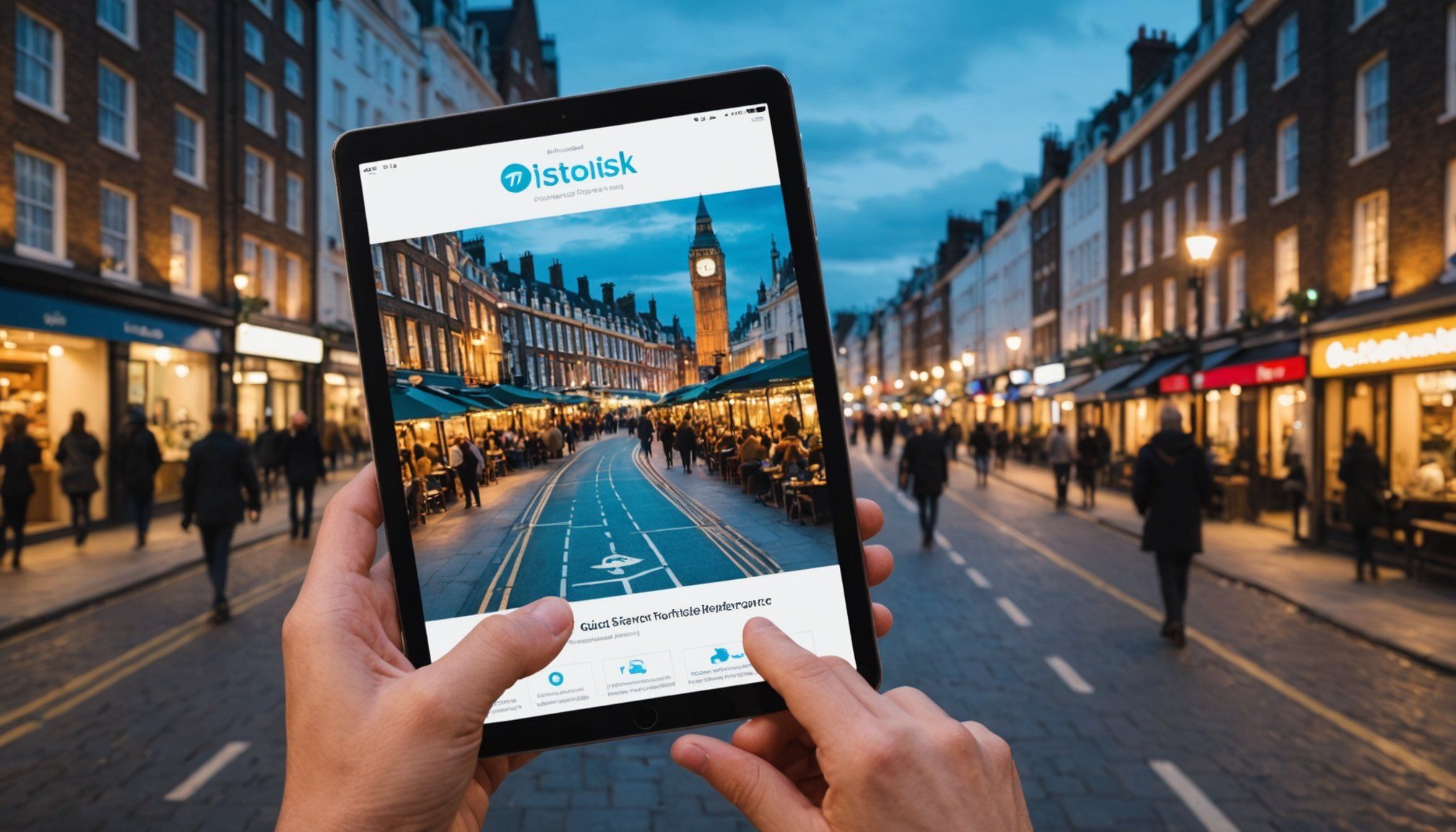Unlocking Travel Insights: A Comprehensive AI-Driven Guide for UK Travel Agencies to Predict Trends and Enhance Customer Experience
In the ever-evolving travel industry, staying ahead of the curve is crucial for UK travel agencies. The integration of artificial intelligence (AI) has revolutionized how these agencies operate, predict trends, and enhance customer experience. Here’s a detailed guide on how AI can be a game-changer for UK travel agencies.
Understanding AI in the Travel Sector
AI is transforming the travel industry by streamlining operations and enhancing customer experience. At its core, AI automates routine tasks and analyses vast amounts of data to provide actionable insights. For instance, AI-powered chatbots and virtual assistants offer 24/7 customer support, handling inquiries and booking requests without human intervention[1].
Have you seen this : Boost attendee interaction: a comprehensive playbook for uk event planners to leverage ai advancements
Key Benefits of AI in Travel
- Automation and Efficiency: AI reduces operational costs and increases efficiency by automating routine tasks.
- Personalized Experiences: AI-driven consumer insights create personalized travel experiences, attracting more customers and fostering loyalty.
- Dynamic Pricing: Real-time data analysis capabilities allow agencies to offer dynamic pricing, optimizing revenue while ensuring competitive offers.
- Enhanced Customer Service: AI-powered tools assist travel agents in analyzing consumer insights, such as preferences and behavior patterns, to tailor services more effectively.
Implementing AI Tools for Data Analytics
Travel agencies globally are turning to AI tools to predict travel trends more accurately. Here’s how they can implement these tools effectively:
Techniques for Travel Forecasting
To forecast travel trends, agencies use data analytics techniques that involve aggregating data from bookings, customer interactions, and even social media discussions. Machine learning models analyze this data to predict future travel demand. For example, an algorithm might detect an increase in searches for a particular destination, suggesting a potential surge in travel interest[1].
This might interest you : Building a comprehensive cybersecurity blueprint for uk fintech startups
Use Cases in UK Travel Agencies
Several UK travel agencies have successfully implemented AI in their operations. Here are a few notable examples:
- Dynamic Pricing Strategy: A London-based agency uses AI-driven data analytics to enhance its dynamic pricing strategy. By predicting periods of high demand, they adjust prices in real-time, optimizing revenue[1].
- Tailored Marketing Campaigns: A tour operator uses AI tools to tailor marketing campaigns, precisely targeting the most responsive audience segments based on predictive analyses[1].
Predicting Travel Trends with AI
Predicting travel trends is crucial for staying competitive in the market. Here’s how AI can help:
Top Travel Trends for 2025
According to research by Accor, several trends are expected to dominate the travel industry in 2025:
- AI-Powered Trip Planners: One in seven Brits plan to use AI-driven ‘AI-tineraries’ in 2025, which offer seamless, hyper-personalized itineraries adapting in real-time[2].
- Lesser-Known Destinations: 58% of Brits now seek lesser-known destinations over tourist hubs, with searches for “hidden gem holidays” jumping 150%[2].
- Solo Travel: Solo travel continues to grow, with 24% of Brits planning trips alone in 2025. Searches for “solo travel deals” and “best solo destinations” are up 30%[2].
- Food-Focused Travel: 32% of Brits are interested in food-focused travel, with searches for “cooking tourism” up 250%[2].
Analyzing Consumer Behavior
AI tools help in analyzing vast amounts of data to understand consumer behavior and preferences. For example, a survey by CintSnap found that:
- Flight and Accommodation Deals: The most valued functions of AI in travel planning include finding flight and accommodation deals, cited by 24% of UK and 23% of US respondents[4].
- Itinerary and Activity Planning: AI is also helpful in itinerary and activity planning, with 16% in the UK and 18% in the US finding it useful[4].
Enhancing Customer Experience with AI
Enhancing customer experience is at the heart of what AI can offer to travel agencies.
Personalized Recommendations
AI travel planners leverage cutting-edge technology to analyze vast datasets and offer personalized travel recommendations. These algorithms connect travelers with experiences they’ll love based on real human feedback. Here’s how AI can enhance customer experience:
- Automated Booking Processes: AI-powered travel management platforms automate booking processes for flights, hotels, and rental cars, ensuring compliance with corporate travel policies and preferences while minimizing manual effort[3].
- Real-Time Support: AI-powered virtual assistants offer 24/7 customer support, providing immediate responses and freeing up human agents for more complex tasks[1][3].
Streamlining Travel Planning
AI streamlines the travel planning process in several ways:
- Expense Management: AI-driven systems simplify expense management by eliminating the hassle of tracking receipts and reports[3].
- Predictive Analysis: AI harnesses predictive analysis to optimize travel plans, aligning with historical patterns and employee preferences to make informed decisions and reduce expenses[3].
Practical Insights and Actionable Advice
Here are some practical insights and actionable advice for UK travel agencies looking to integrate AI into their operations:
Building AI Infrastructure
To stay ahead of the curve, travel agencies must strategically implement AI solutions. Here are some steps to consider:
- Prioritize AI Training: Prioritizing AI training and infrastructure is a vital step. Agencies should proactively explore AI trends and solutions to remain competitive[1].
- Partnerships with AI Innovators: Building partnerships with AI innovators can facilitate the integration of AI technologies into existing systems[1].
Addressing Concerns
While AI offers numerous benefits, there are also concerns that need to be addressed:
- Privacy Concerns: Privacy is a top concern for many travelers. Ensuring that AI systems are secure and transparent in their data handling practices is crucial[4].
- Accuracy of Recommendations: The accuracy of AI recommendations is another concern. Continuous improvement and feedback loops can help in enhancing the accuracy of these recommendations[4].
Future of AI in UK Travel Agencies
The future of AI in the travel industry is promising, with emerging technologies set to revolutionize the landscape.
Innovation in Travel
Innovation through AI technologies can lower operational costs, improve customer service, and optimize travel planning. Here are some future trends to watch out for:
- AI-Powered Virtual Assistants: AI-powered virtual assistants will continue to handle customer inquiries 24/7, providing immediate support and freeing up human agents for more complex tasks[1].
- Personalized Travel Experiences: AI will curate tailored experiences for consumers, like recommending personalized trips based on previous bookings and preferences[1].
Case Studies of AI Success in UK Travel Agencies
Several UK travel agencies have already seen significant success with AI integration. Here are a few case studies:
Example 1: AI-Driven Customer Support
One prominent UK travel agency implemented an AI system to handle customer inquiries and bookings. This approach allowed the agency to provide 24/7 support and reduce the workload on human staff. As a result, customer satisfaction significantly increased due to faster response times and personalized service[1].
Example 2: AI-Driven Data Analytics
Another agency used AI to analyze vast amounts of travel data, enabling them to offer tailored recommendations to clients. This boosted sales margins and improved marketing strategies. The benefits realized from this AI integration included more efficient marketing strategies and improved customer targeting[1].
Table: Benefits and Use Cases of AI in Travel Agencies
| Benefit/Use Case | Description | Example |
|---|---|---|
| Dynamic Pricing | Adjust prices in real-time based on demand. | A London-based agency uses AI to predict high demand periods and adjust prices accordingly[1]. |
| Personalized Recommendations | Offer tailored travel recommendations based on consumer data. | AI travel planners connect travelers with experiences they’ll love based on real human feedback[3]. |
| 24/7 Customer Support | Provide immediate customer support through AI-powered chatbots. | A UK travel agency implemented an AI system to handle customer inquiries 24/7[1]. |
| Expense Management | Simplify expense management by automating tracking and reporting. | AI-driven systems eliminate the hassle of tracking receipts and reports[3]. |
| Predictive Analysis | Optimize travel plans based on historical patterns and preferences. | AI harnesses predictive analysis to make informed decisions and reduce expenses[3]. |
Quotes from Industry Experts
- “AI has the potential to improve their holiday planning experience, rising to 68% of 25-34s,” says a report from Mintel, highlighting the growing acceptance of AI in travel planning[5].
- “AI-powered trip planners offer seamless, hyper-personalized itineraries, adapting in real-time for smoother travel experiences,” notes Accor’s research on top travel trends for 2025[2].
The integration of AI in UK travel agencies is not just a trend; it is a necessity for staying competitive in the market. By leveraging AI tools for data analytics, predicting travel trends, and enhancing customer experience, travel agencies can optimize their operations, reduce costs, and provide personalized services that attract and retain customers.
As the travel industry continues to evolve, embracing AI will be key to unlocking new insights, improving decision-making, and delivering exceptional customer service. Whether it’s through dynamic pricing, personalized recommendations, or 24/7 customer support, AI is set to revolutionize the travel hospitality industry in ways that were previously unimaginable.






